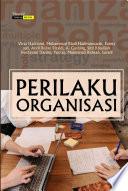
Perilaku Organisasi
- ISBN 13 : 6238148454
- ISBN 10 : 9786238148455
- Judul : Perilaku Organisasi
- Pengarang : Virza Hadrianti, Muhammad Riadi Harimuswarah, Fatma sari, Andi Risfan Rizaldi, A. Gustang, Sitti Khadijah Herdayani Darsim, Yusran, Mukminati Ridwan, Suradi, Muhammad Riadi Harimuswarah, Fatma sari, Andi Risfan Rizaldi, A. Gustang, Sitti Khadijah Herdayani Darsim, Yusran, Mukminati Ridwan, Suradi, Muhammad Riadi Harimuswarah, Fatma sari, Andi Risfan Rizaldi, A. Gustang, Sitti Khadijah Herdayani Darsim, Yusran, Mukminati Ridwan, Suradi, Muhammad Riadi Harimuswarah, Fatma sari, Andi Risfan Rizaldi, A. Gustang, Sitti Khadijah Herdayani Darsim, Yusran, Mukminati Ridwan, Suradi, Muhammad Riadi Harimuswarah, Fatma sari, Andi Risfan Rizaldi, A. Gustang, Sitti Khadijah Herdayani Darsim, Yusran, Mukminati Ridwan, Suradi, Muhammad Riadi Harimuswarah, Fatma sari, Andi Risfan Rizaldi, A. Gustang, Sitti Khadijah Herdayani Darsim, Yusran, Mukminati Ridwan, Suradi, Muhammad Riadi Harimuswarah, Fatma sari, Andi Risfan Rizaldi, A. Gustang, Sitti Khadijah Herdayani Darsim, Yusran, Mukminati Ridwan, Suradi, Muhammad Riadi Harimuswarah, Fatma sari, Andi Risfan Rizaldi, A. Gustang, Sitti Khadijah Herdayani Darsim, Yusran, Mukminati Ridwan, Suradi, Muhammad Riadi Harimuswarah, Fatma sari, Andi Risfan Rizaldi, A. Gustang, Sitti Khadijah Herdayani Darsim, Yusran, Mukminati Ridwan, Suradi, Muhammad Riadi Harimuswarah, Fatma sari, Andi Risfan Rizaldi, A. Gustang, Sitti Khadijah Herdayani Darsim, Yusran, Mukminati Ridwan, Suradi, Muhammad Riadi Harimuswarah, Fatma sari, Andi Risfan Rizaldi, A. Gustang, Sitti Khadijah Herdayani Darsim, Yusran, Mukminati Ridwan, Suradi, Muhammad Riadi Harimuswarah, Fatma sari, Andi Risfan Rizaldi, A. Gustang, Sitti Khadijah Herdayani Darsim, Yusran, Mukminati Ridwan, Suradi, Muhammad Riadi Harimuswarah, Fatma sari, Andi Risfan Rizaldi, A. Gustang, Sitti Khadijah Herdayani Darsim, Yusran, Mukminati Ridwan, Suradi, Muhammad Riadi Harimuswarah, Fatma sari, Andi Risfan Rizaldi, A. Gustang, Sitti Khadijah Herdayani Darsim, Yusran, Mukminati Ridwan, Suradi, Muhammad Riadi Harimuswarah, Fatma sari, Andi Risfan Rizaldi, A. Gustang, Sitti Khadijah Herdayani Darsim, Yusran, Mukminati Ridwan, Suradi, Muhammad Riadi Harimuswarah, Fatma sari, Andi Risfan Rizaldi, A. Gustang, Sitti Khadijah Herdayani Darsim, Yusran, Mukminati Ridwan, Suradi, Muhammad Riadi Harimuswarah, Fatma sari, Andi Risfan Rizaldi, A. Gustang, Sitti Khadijah Herdayani Darsim, Yusran, Mukminati Ridwan, Suradi, Muhammad Riadi Harimuswarah, Fatma sari, Andi Risfan Rizaldi, A. Gustang, Sitti Khadijah Herdayani Darsim, Yusran, Mukminati Ridwan, Suradi, Muhammad Riadi Harimuswarah, Fatma sari, Andi Risfan Rizaldi, A. Gustang, Sitti Khadijah Herdayani Darsim, Yusran, Mukminati Ridwan, Suradi, Muhammad Riadi Harimuswarah, Fatma sari, Andi Risfan Rizaldi, A. Gustang, Sitti Khadijah Herdayani Darsim, Yusran, Mukminati Ridwan, Suradi, Muhammad Riadi Harimuswarah, Fatma sari, Andi Risfan Rizaldi, A. Gustang, Sitti Khadijah Herdayani Darsim, Yusran, Mukminati Ridwan, Suradi, Muhammad Riadi Harimuswarah, Fatma sari, Andi Risfan Rizaldi, A. Gustang, Sitti Khadijah Herdayani Darsim, Yusran, Mukminati Ridwan, Suradi, Muhammad Riadi Harimuswarah, Fatma sari, Andi Risfan Rizaldi, A. Gustang, Sitti Khadijah Herdayani Darsim, Yusran, Mukminati Ridwan, Suradi, Muhammad Riadi Harimuswarah, Fatma sari, Andi Risfan Rizaldi, A. Gustang, Sitti Khadijah Herdayani Darsim, Yusran, Mukminati Ridwan, Suradi, Muhammad Riadi Harimuswarah, Fatma sari, Andi Risfan Rizaldi, A. Gustang, Sitti Khadijah Herdayani Darsim, Yusran, Mukminati Ridwan, Suradi, Muhammad Riadi Harimuswarah, Fatma sari, Andi Risfan Rizaldi, A. Gustang, Sitti Khadijah Herdayani Darsim, Yusran, Mukminati Ridwan, Suradi, Muhammad Riadi Harimuswarah, Fatma sari, Andi Risfan Rizaldi, A. Gustang, Sitti Khadijah Herdayani Darsim, Yusran, Mukminati Ridwan, Suradi, Muhammad Riadi Harimuswarah, Fatma sari, Andi Risfan Rizaldi, A. Gustang, Sitti Khadijah Herdayani Darsim, Yusran, Mukminati Ridwan, Suradi,
- Kategori : Business & Economics
- Penerbit : Tohar Media
- Bahasa : id
- Tahun : 2023
- Halaman : 128
- Google Book : https://play.google.com/store/books/details?id=xozAEAAAQBAJ&source=gbs_api
-
Ketersediaan :









